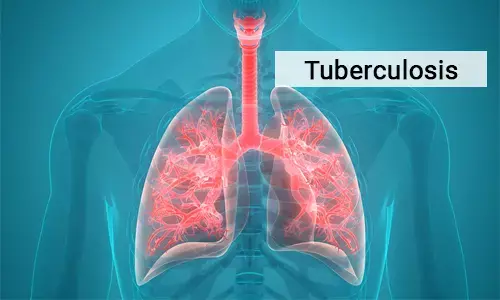- Home
- Medical news & Guidelines
- Anesthesiology
- Cardiology and CTVS
- Critical Care
- Dentistry
- Dermatology
- Diabetes and Endocrinology
- ENT
- Gastroenterology
- Medicine
- Nephrology
- Neurology
- Obstretics-Gynaecology
- Oncology
- Ophthalmology
- Orthopaedics
- Pediatrics-Neonatology
- Psychiatry
- Pulmonology
- Radiology
- Surgery
- Urology
- Laboratory Medicine
- Diet
- Nursing
- Paramedical
- Physiotherapy
- Health news
- Fact Check
- Bone Health Fact Check
- Brain Health Fact Check
- Cancer Related Fact Check
- Child Care Fact Check
- Dental and oral health fact check
- Diabetes and metabolic health fact check
- Diet and Nutrition Fact Check
- Eye and ENT Care Fact Check
- Fitness fact check
- Gut health fact check
- Heart health fact check
- Kidney health fact check
- Medical education fact check
- Men's health fact check
- Respiratory fact check
- Skin and hair care fact check
- Vaccine and Immunization fact check
- Women's health fact check
- AYUSH
- State News
- Andaman and Nicobar Islands
- Andhra Pradesh
- Arunachal Pradesh
- Assam
- Bihar
- Chandigarh
- Chattisgarh
- Dadra and Nagar Haveli
- Daman and Diu
- Delhi
- Goa
- Gujarat
- Haryana
- Himachal Pradesh
- Jammu & Kashmir
- Jharkhand
- Karnataka
- Kerala
- Ladakh
- Lakshadweep
- Madhya Pradesh
- Maharashtra
- Manipur
- Meghalaya
- Mizoram
- Nagaland
- Odisha
- Puducherry
- Punjab
- Rajasthan
- Sikkim
- Tamil Nadu
- Telangana
- Tripura
- Uttar Pradesh
- Uttrakhand
- West Bengal
- Medical Education
- Industry
Researchers develop non invasive sticker patch for faster diagnosis of tuberculosis

Israel: A sticker patch devised by Technion scientists can catch compounds released by the skin and is a novel means of diagnosing tuberculosis. The analysis of these compounds by using artificial intelligence (AI) can provide a quick, non-invasive diagnosis. In future implementations, the group plans to integrate the sensors into the patch and use a smartphone to read its results.
The findings of the study were published in the journal Advanced Science.
Tuberculosis, colloquially known as "consumption," is prevalent in the developing world, with 95% of cases occurring there. In 2019, an estimated 10 million people fell ill with tuberculosis, and 1.4 million died of the disease. About one-third of the world population is estimated to be infected by tuberculosis bacteria. Since 1993, the World Health Organization (WHO) defines tuberculosis as a "global health emergency." Effective treatment for tuberculosis is available, but diagnosis remains a roadblock, with around 3 million cases missed annually.
Early symptoms of tuberculosis are non-specific, complicating diagnosis. What makes matters worse is that currently existing diagnosis methods are slow, and at times too expensive or complex for resource-limited settings. For example, a sputum smear ($2.60 to $10.50 per examination) is too expensive in a location where people live on $1/day, while a mycobacterial culture test takes 4–8 weeks and at least three visits by the patient to finalize the diagnosis and begin treatment.
WHO regards a fast, cheap, and efficient tuberculosis test as crucial to fighting the disease. And it is this need that the team of Professor Hossam Haick from the Wolfson Department of Chemical Engineering at the Technion address in their ground-breaking study. Led by Dr. Rotem Vishinkin, the group created a sticker patch to be applied on the patient's arm. Containing a pouch of absorbing material, the patch collected compounds released through the skin. These provided the sought-after diagnostic tool.
A device based on this proof-of-concept study, called A-patch, is already undergoing clinical trials. Dr. Vishinkin, the project's scientific leader, explained, "our initial studies, done on a large number of subjects in India and in South Africa showed high effectiveness in diagnosing tuberculosis, with over 90% sensitivity and over 70% specificity. We showed that tuberculosis can be diagnosed through the compounds released by the skin. Our current challenge is minimizing the size of the sensor array and fitting it into the sticker patch."
The platform the group is developing is cheap, fast, and simple in its utilization, and requires no specially trained personnel. The group hopes the same methodology and the same platform could in the future be used to diagnose other diseases and conditions, making effective diagnosis accessible to remote areas in the world.
The clinical studies were conducted in the University of Cape Town and Groote Schuur Hospital, South Africa, the All India Institute of Medical Sciences, India, and the University of Latvia and Riga East University Hospital, Latvia. The study was supported by the Bill & Melinda Gates Foundation and generously assisted by Professor Gilla Kaplan. The continuation of the development under A-Patch project is supported by Horizon 2020. Dr. Vishinkin thanks the Ariane de Rothchild Fellowship for their support during her PhD studies.
Reference:
The study titled, "Profiles of Volatile Biomarkers Detect Tuberculosis from Skin," is published in the journal Advanced Science.
DOI: https://onlinelibrary.wiley.com/doi/10.1002/advs.202100235
Hina Zahid Joined Medical Dialogue in 2017 with a passion to work as a Reporter. She coordinates with various national and international journals and association and covers all the stories related to Medical guidelines, Medical Journals, rare medical surgeries as well as all the updates in the medical field. Email: editorial@medicaldialogues.in. Contact no. 011-43720751
Dr Kamal Kant Kohli-MBBS, DTCD- a chest specialist with more than 30 years of practice and a flair for writing clinical articles, Dr Kamal Kant Kohli joined Medical Dialogues as a Chief Editor of Medical News. Besides writing articles, as an editor, he proofreads and verifies all the medical content published on Medical Dialogues including those coming from journals, studies,medical conferences,guidelines etc. Email: drkohli@medicaldialogues.in. Contact no. 011-43720751


